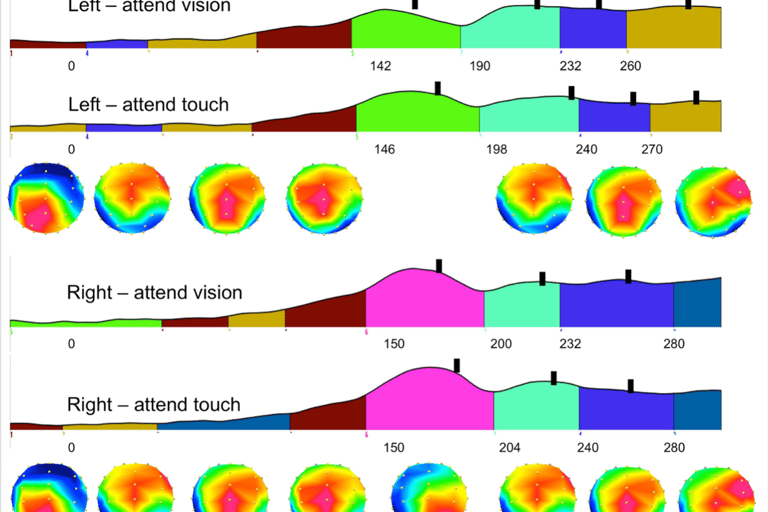
Research Projects
Some of our work has investigated how different types of attention can influence brain potentials. The paper “Temporal order is coded temporally in the brain: Early ERP latency shifts underlying prior entry in a crossmodal temporal order judgment task.” discovered a new way that attention is expressed in the brain. It has commonly been accepted that selective attention increases the amplitude of early neuronal potentials. This work discovered that selective attention can also modulate the timing of early neuronal potentials creating a peak shift. This effect is seen under very specific conditions when looking at temporal order judgments and focusing attention specifically towards sensory modalities. Follow up research on spatial attention showed that it influences later processing stages than attention to sensory modalities. This work was conducted in collaboration with two Oxford teams that have developed our understanding of how attention is expressed in the brain using neuroimaging techniques.


